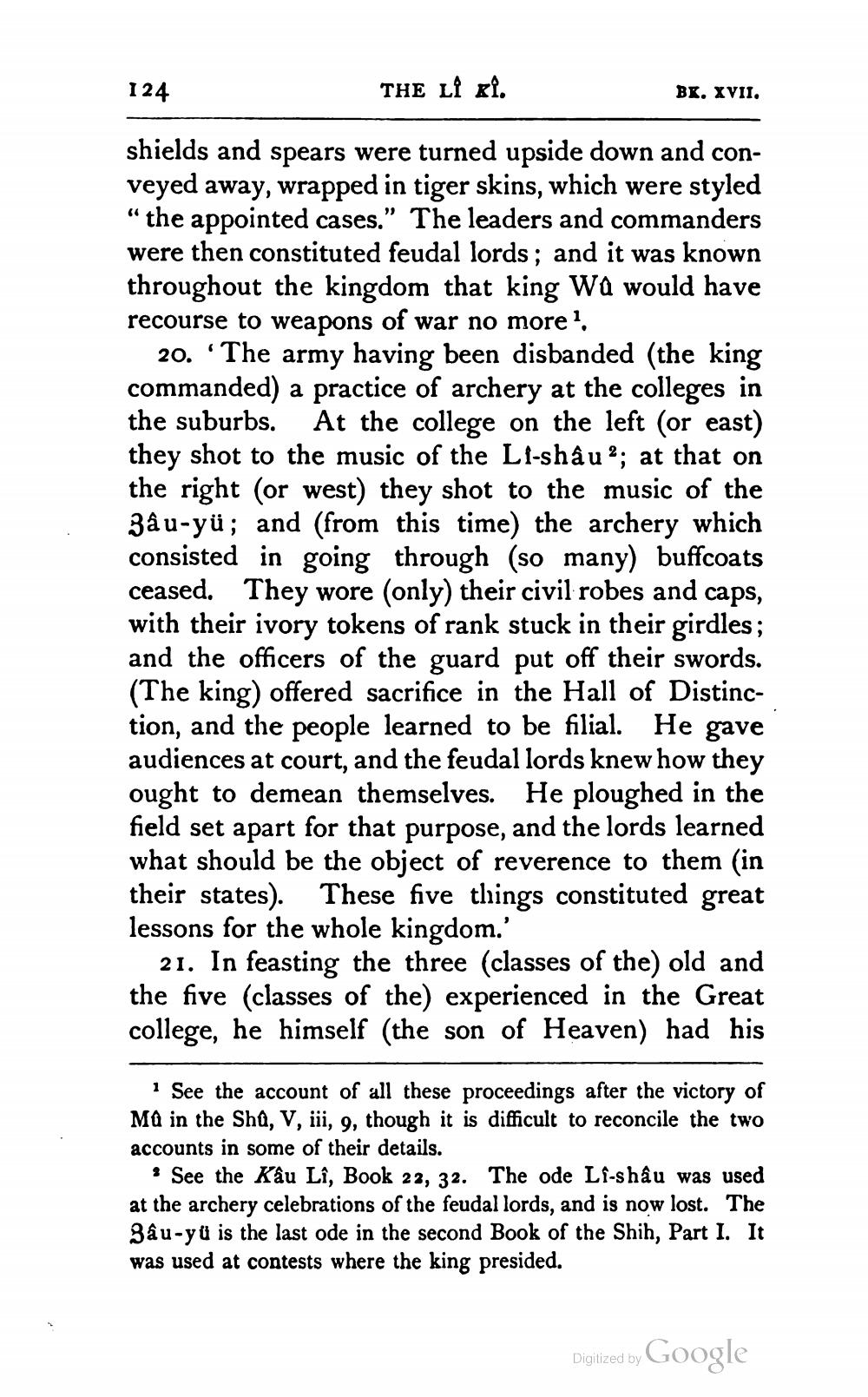________________
124
THE LÎ ki.
BK. XVII.
shields and spears were turned upside down and conveyed away, wrapped in tiger skins, which were styled “the appointed cases." The leaders and commanders were then constituted feudal lords; and it was known throughout the kingdom that king Wů would have recourse to weapons of war no more
20. “The army having been disbanded (the king commanded) a practice of archery at the colleges in the suburbs. At the college on the left (or east) they shot to the music of the Li-shâu?; at that on the right (or west) they shot to the music of the Za u-yü; and (from this time) the archery which consisted in going through (so many) buffcoats ceased. They wore (only) their civil robes and caps, with their ivory tokens of rank stuck in their girdles; and the officers of the guard put off their swords. (The king) offered sacrifice in the Hall of Distinction, and the people learned to be filial. He gave audiences at court, and the feudal lords knew how they ought to demean themselves. He ploughed in the field set apart for that purpose, and the lords learned what should be the object of reverence to them in their states). These five things constituted great lessons for the whole kingdom.'
21. In feasting the three (classes of the) old and the five (classes of the) experienced in the Great college, he himself (the son of Heaven) had his
See the account of all these proceedings after the victory of Md in the Shû, V, iii, 9, though it is difficult to reconcile the two accounts in some of their details.
? See the Kâu Lî, Book 22, 32. The ode Li-shâu was used at the archery celebrations of the feudal lords, and is now lost. The Zâu-yü is the last ode in the second Book of the Shih, Part I. It was used at contests where the king presided.
Digitized by Google




